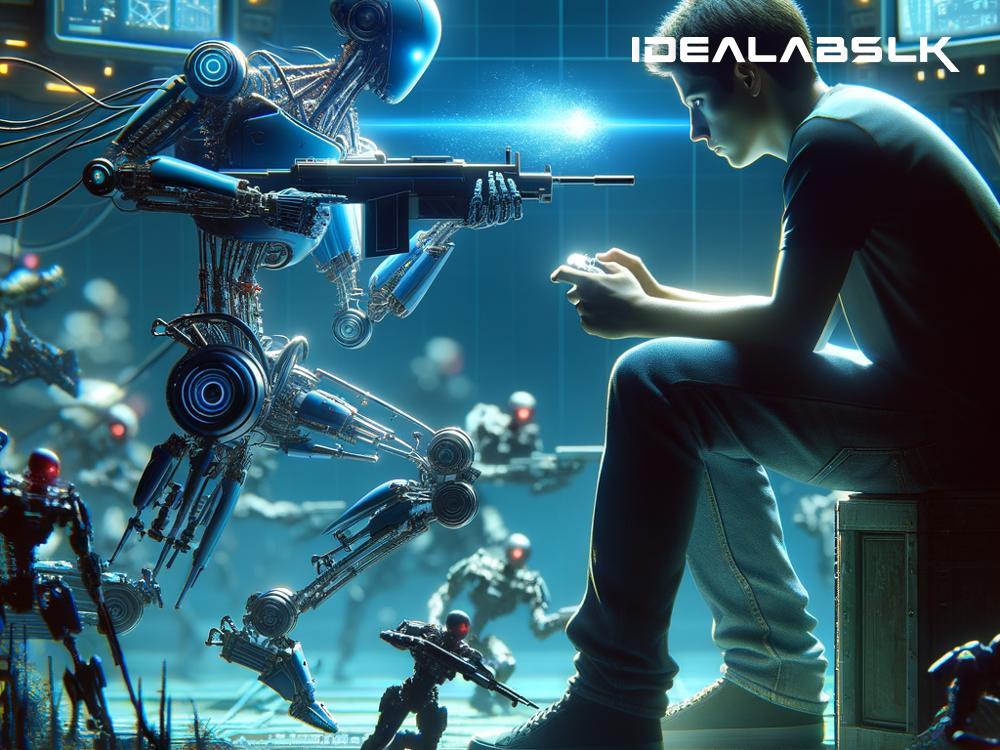The Marvel of AI in Portable Gaming Consoles: Ushering in an Era of Real-time Adaptation
Gone are the days when video games were mere static challenges, set in a digital stone with fixed levels, unchanging enemies, and predictable patterns. The gaming world has been revolutionized by a quiet yet powerful force — Artificial Intelligence (AI), especially in the realm of portable gaming consoles.
Imagine playing a game that learns from your gameplay, adapts in real-time, and provides a dynamic experience tailored just for you. It sounds like something straight out of a sci-fi novel, but it's the reality we're stepping into, thanks to AI's integration into portable gaming consoles.
What is AI, and How Does it Fit in Gaming?
In its simplest form, AI is a branch of computer science focused on creating intelligent machines that can simulate human brain functions such as learning, problem-solving, and decision-making. When applied to gaming, AI can oversee various tasks, from controlling non-player characters (NPCs) to altering game difficulty based on how well the player is performing.
Real-time Adaptation: The Game Changer
One of AI's most thrilling applications in portable gaming is real-time adaptation. This technology allows games to analyze how a player interacts with the game environment, makes decisions, and overall, plays the game. Using this analysis, the game then adjusts in real-time to provide a more engaging and challenging experience.
For example, if a player is breezing through levels, finding them too easy, the game might ramp up the difficulty, introducing smarter enemies or less time to complete objectives. Conversely, if a player struggles, the game might dial down the difficulty or offer helpful tips and tricks. This adaptability ensures that the game remains challenging and exciting for players of all skill levels.
Enhancing Personal Engagement and Learning
Beyond just adjusting difficulty, AI can personalize gaming experiences, making games feel more alive and interactive. Imagine an adventure game that evolves based on your decisions, creating a storyline unique to each player. Or a sports simulator that changes tactics and strategies in response to how you play.
Additionally, this technology holds promise for educational games, where AI can adapt puzzles and challenges to suit the learner's pace, making learning more effective and enjoyable. This could revolutionize how we think about learning, turning it into a deeply personal and engaging experience.
Overcoming Challenges
Implementing AI in portable gaming consoles does face some hurdles. The primary challenge is the limited hardware capabilities of these devices. AI, especially when involving real-time adaptation, requires significant processing power, which can be a tall order for handheld devices designed to be lightweight and battery-efficient.
However, developers are finding ways around these limitations, such as optimizing AI algorithms or offloading some of the processing to cloud servers, allowing the consoles to run AI-driven games without compromising performance or battery life.
The Future is Bright (and Intelligent)
As technology advances, we can expect AI in portable gaming consoles to become more sophisticated. The next generation of handheld gaming devices may feature even more advanced AI capabilities, offering personalized experiences that were once thought impossible.
This could mean games that not only adapt in real-time but also games that grow and evolve over time, learning from a community of players to create worlds that are ever-changing and full of surprises. The potential is virtually limitless, and we're just scratching the surface of what's possible.
In conclusion, AI is transforming portable gaming consoles, making games more adaptive, engaging, and personalized than ever before. This technology is not just enhancing the way we play games; it's redefining the gaming experience altogether, ensuring that no two gaming sessions are ever the same.
As developers continue to push the boundaries of what's possible with AI in gaming, we can look forward to a future where games are not just played but experienced — a dynamic, ever-evolving journey that's as unique as the person holding the console. The era of real-time adaptation in gaming is here, and it's as exciting as it sounds.

